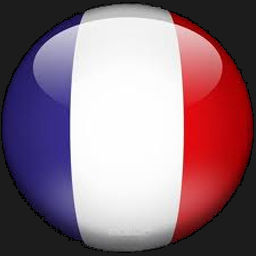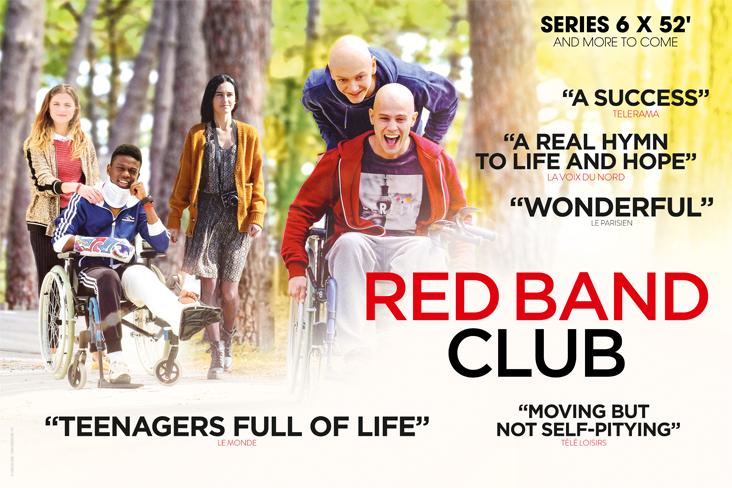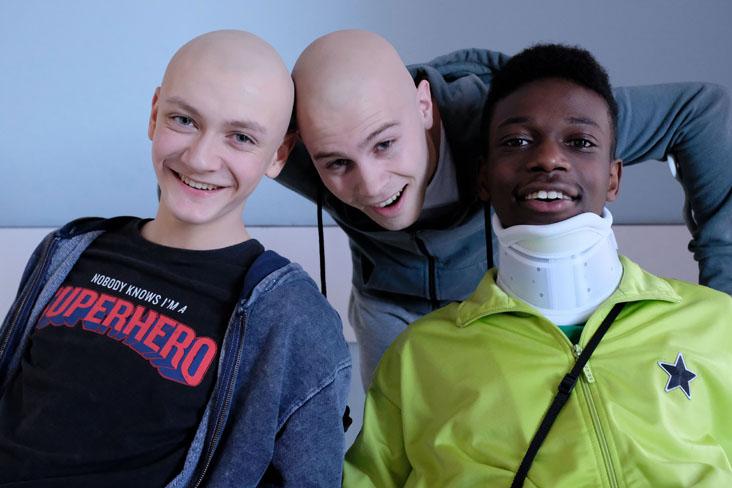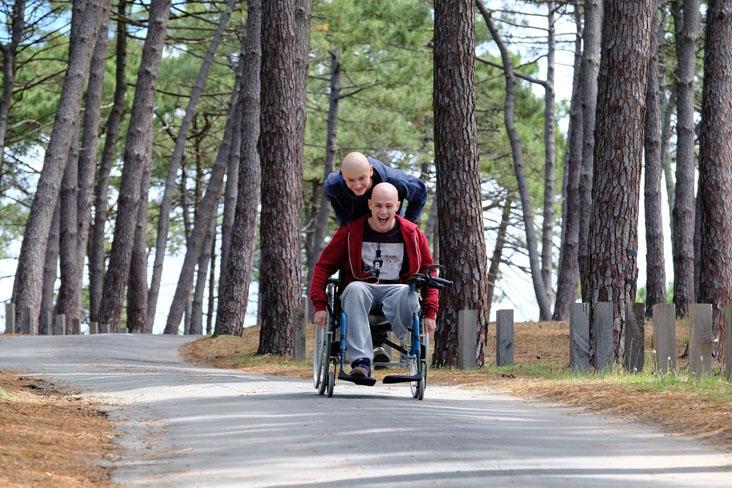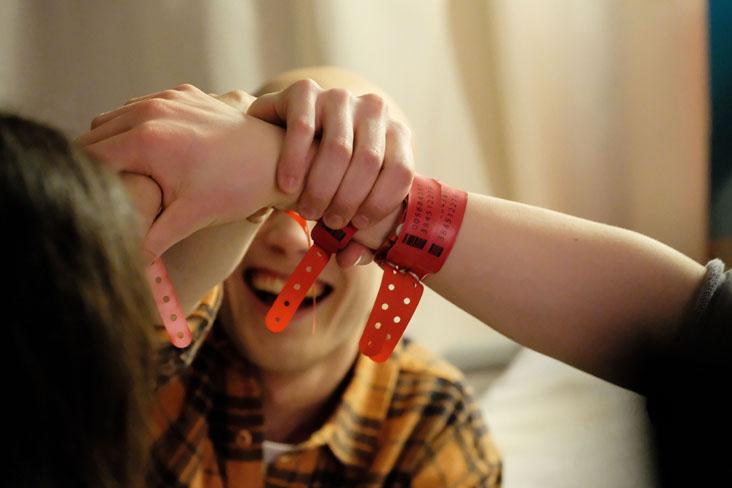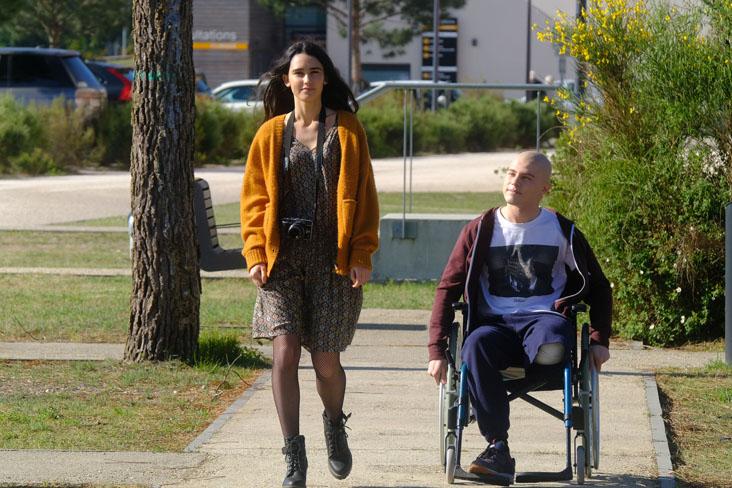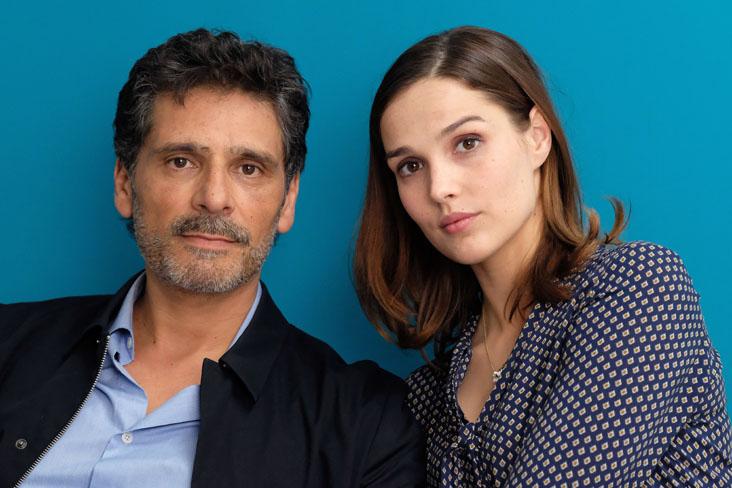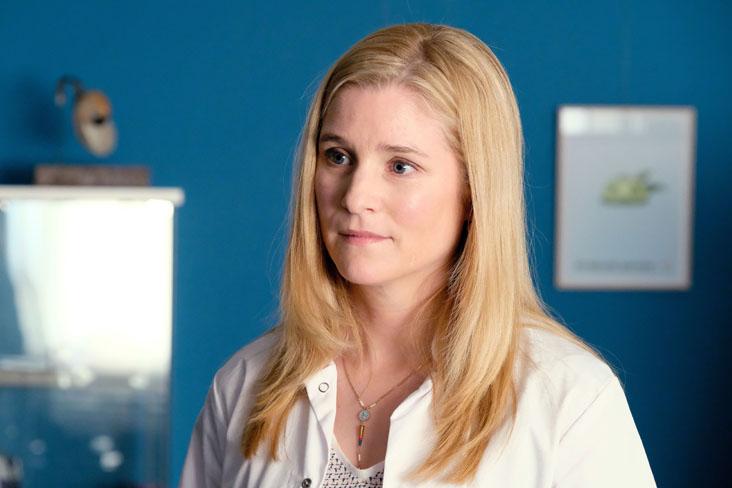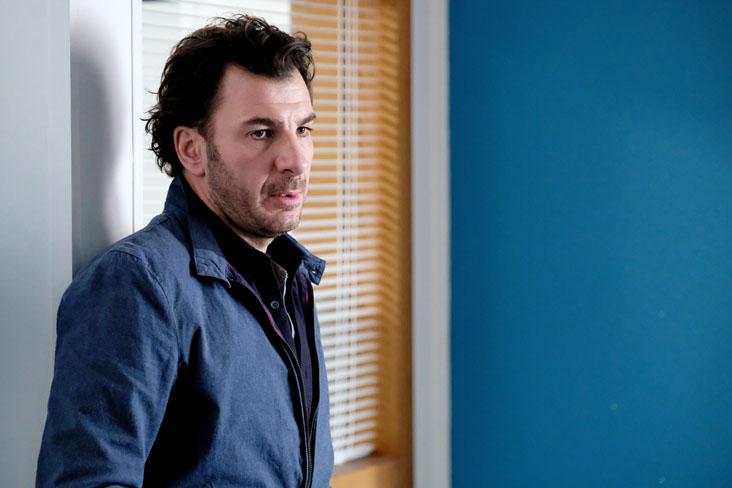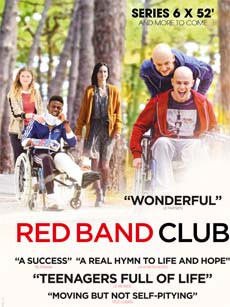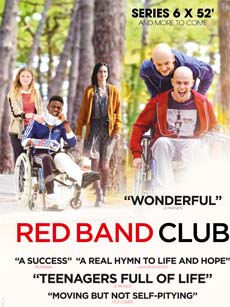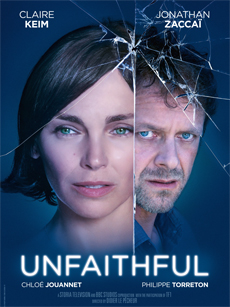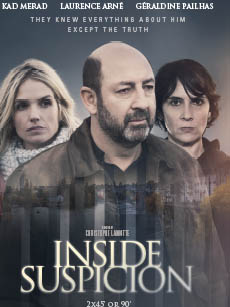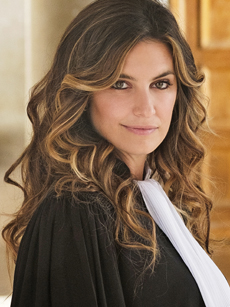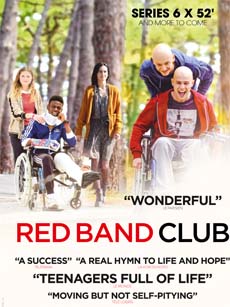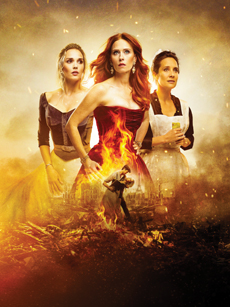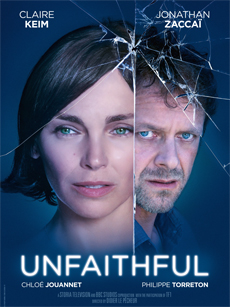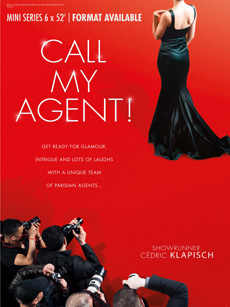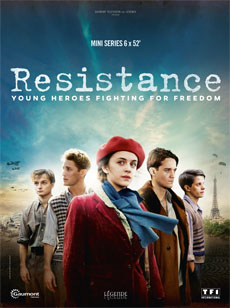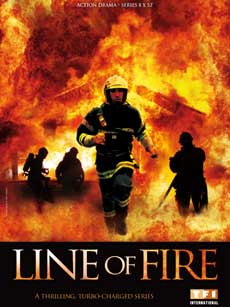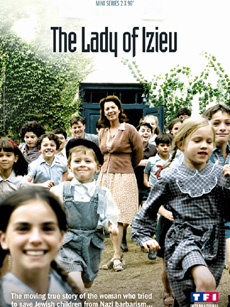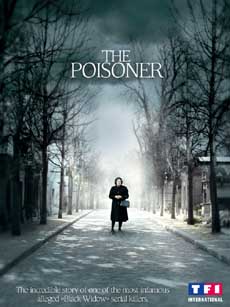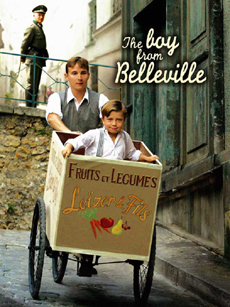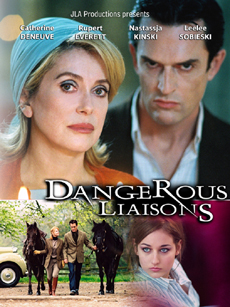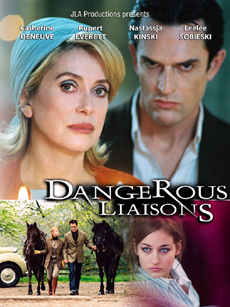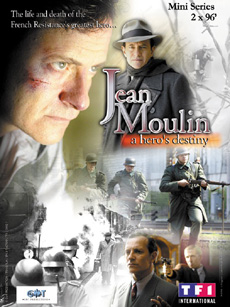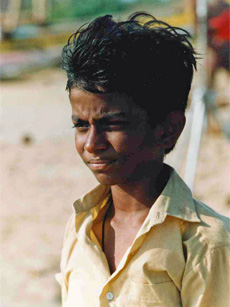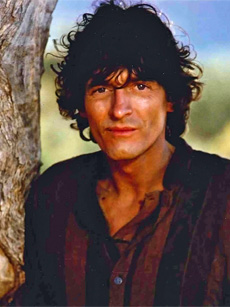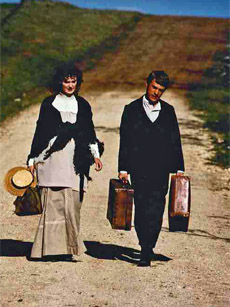Interview with Albert ESPINOSA
Author of Red Band Club
Published by Sophie Ricaume January 16, 2018
"The heroes don't wear capes, they wear red wristbands."
At the age of 44, Albert Espinosa has come a long way. He has bounced back, armed with humor and indestructible positivity. Author of the original Spanish version of Red Band Club, Polseres Vermelles, he has survived three cancers and lived in hospitals for years, among "his own." A look back at the birth of this sweet but unmelodramatic series, truly one of kind, which is devoted to the patient experience… finally!
How much of Red Band Club is fiction, and how much is real?
The story is autobiographical, based on my book Le Monde Soleil, published by Livre de Poche (The Yellow World). The series Red Band Club tells the story of my life between the ages of 14 and 24. During those ten years, even though I lost a leg, a lung and half my liver, I was always happy. This fiction isn't really about cancer for me - it talks about what I learned from the disease, day after day.
What message were you trying to get across when you wrote Red Band Club?
First of all, that dying is not sad. What's sad is not living life to the fullest. After that, I wanted to convey the idea that every loss is a gain.
Is humor the best ammunition to face life?
I always say that humor helps everything. I've always been convinced that the best jokes are the ones based on reality. For example, I had a hydraulic prosthetic leg that used to leak. One day in the street, a lady said to me, "You're leaking oil, sir." And it was true. A stream of oil was leaking out of my prosthetic leg. With my new electric leg, I have other problems, because I have to charge it at night. In hotel rooms with only one plug, I have to decide whether to charge my computer, my cell phone or my orthopedic leg.
We're used to seeing a lot of hospital series on TV where the heroes are doctors, but not so many about patients. Was it important to give them that recognition?
Yes. My greatest reward after the series aired was to hear viewers say that the heroes don't wear capes, they wear red wristbands. It changed the way they look at sick people. In every country that has adapted the series, hospital visits went up 40%. It's important to visit cancer patients and give them love. In the hospital, people don't die of cancer alone; they die of boredom, too.
In the series, there are two different worlds: outside the hospital and inside the hospital. Do the patients create a new family for themselves?
At the hospital, we made a pact with life. For every one of our friends who died there, we divided his or her life into equal parts, so that it could continue to thrive within us. That way, we could fulfill the dreams they could never attain. During the ten years I spent in the hospital, I gained 3.7 redistributed lives. Added to my own, that makes 4.7. They all grew within me, and those 4.7 lives wanted me to tell this story.
How was the story received in Spain? Do you think the international adaptations are faithful to the original work?
It was all amazing. In Spain, it was a success, just like in Germany, Italy, Argentina, Chili and Russia. Even Spielberg has made an adaptation of Red Band Club. There have been fourteen versions to date. But I think there's something special about the French version. The authors did a really great adaptation. The director Nicolas Cuche is a genius and the actors are one-of-a-kind. I love this version and I think it's one of the best.
Have you fulfilled all your dreams?
I've always thought that if you believe in your dreams, they end up coming true. Today I am alive, even though I only had a 3% chance of survival. I never imagined one day I would make it from the bed of my little hospital room onto my TV screen. It's a real dream come true!
Interview with Nicolas CUCHE,
Director of Red Band Club
Published by Sophie Ricaume January 16, 2018
"I didn't want a hospital show; I wanted a story about teens."
We may know him for the comedies he's made for the big screen (Second Chance, Anything for Alice), but Nicolas Cuche is above all a master of TV. After directing many series (most recently TF1's Après moi le bonheur, Elite Squad, Inquisitio and David Nolande), he has now made Red Band Club, a 6-episode TV drama adapted from the Spanish series whose heroes are young hospital patients. An ode to the tumultuous teen years, the show brings us into their daily lives, leaving behind the clichés and bringing in a good dose of humor, allowing us into the private circle of the Red Band Club.
Were you already familiar with the Spanish series Polseres Vermelles when you were asked to make the French adaptation?
Not at all. I thought it was a story about clowns in a hospital. I was afraid it would be the point of view of adults instead of teens, and I wouldn't have liked that very much. When the producer VĂ©ronique Marchat gave me the first couple of episodes, I called her right way to tell her how enthusiastic I was. Then I met the author Albert Espinosa and I fell in love with him immediately. I even delayed a film project to make Red Band Club. I couldn't pass up a story like this, because with TV, you can explore subjects that you can't take on in movies.
Is your version a lot different? More personal?
This version is definitely different, because the Spanish one is more like a sitcom and has a lot of episodes, but they share the same DNA. The work I do has revolved around tough subjects like this one for a long time, along the lines of Après moi le bonheur. I felt there was space for creating comedy without betraying its truths or resorting to melodrama. I like that kind of approach and feel pretty comfortable with it.
What elements allowed you to avoid melodrama?
First, we had a little dose of the supernatural with the character of Come (played by Marius Blivet). Come is still one of the gang, but he has fallen into a deep coma and can't communicate. And yet, at certain critical moments, he talks to his friends in a dream reality. I would have liked that fantasy element to be even stronger. I even planned to have Come's spirit wander through the hospital hallways, as if he was omniscient. We tried it out but it didn't work well enough.
Next, I was very careful in the edit not to stay too long on the sad or tough moments. I wanted it to be moving, of course, but without being heavy-handed.
The last critical factor was the music. I asked myself what kind of music would help me really get into the story. I wanted an original soundtrack without violins. I met with a lot of composers whose proposals were too melodramatic and made me feel like we were going too far. I finally chose HiTRun, whose music has a more electro feel to it. It works great for the series and resonates with the age group of the main characters. It was custom created for Red Band Club and I'm very happy with it.
Did you take French culture into consideration when you adapted the series?
Yes. For example, Medhi (played by Azize Diabate) is a character who wouldn't exist in the Spanish version. The character of Clement (played by Tom Rivoire) is much less virile and macho in the French incarnation. He is a big talker with very little self-confidence and very little life experience compared to the others. Some of the boys' roles from the Catalan version became girls' parts. What remained crucial was to respect the personality of each teen, above and beyond gender or origins.
Was it hard to pick the main characters? Were you looking for specific types?
That was the key element to the whole project. The cast had to be able to take on the roles. It took months for me to meet an actor for each role who struck me deeply on both a human and artistic level. And yet most of them had never even acted in front of a camera. They all have very strong personalities. It was a pleasure directing them. And before Albert Espinosa came to France to meet the actors, he made the effort of taking French classes and diction lessons so that he could really communicate with them. He even wrote a text and read it to them, to explain that the characters they were going to play were truly real. It was a very intense moment for me as well as for them.
You didn't spare the crude scenes. Was it important to give it that realistic touch?
Yes. Absolutely. This series addresses a serious subject. I didn't want to paint a pretty picture; it would have been dishonest to cheat too much with reality. We put a lot of effort into making sure things were believable. For example, in the surgery scene, besides the actor Lionel Abelanski who plays the surgeon, all the nurses and anesthesiologists are professionals. It had to seem real. When Clement has a relapse and starts chemo again, I didn't think it was believable for him to have a bright complexion and rosy cheeks.
Is it safe to say the series is about teenage life?
I've been wanting to make a film about teenagers for a long time. I think French TV is lacking in fiction shows with teens as the main characters - what they call "teen drama" in other countries. Here they are central to the story. I didn't want a hospital show; I wanted a story about teens. It's a different point of view.
Are you working on Season 2?
TF1 really wants to make a second season. They've already ordered eight episodes, which are being written. If all goes well, we should be shooting by the end of spring. I can't wait to find out what happens to these teens. I'm attached to them.
What's new for you besides Red Band Club?
I just made Prof T, a crime TV series that will air next month on TF1, and I have some movie projects as well. I'm also wrapping up a TV movie for France 2 called Deux gouttes d’eau, with Sylvie Testut, Michaël Youn and Hugo Becker.
 Print
Print

